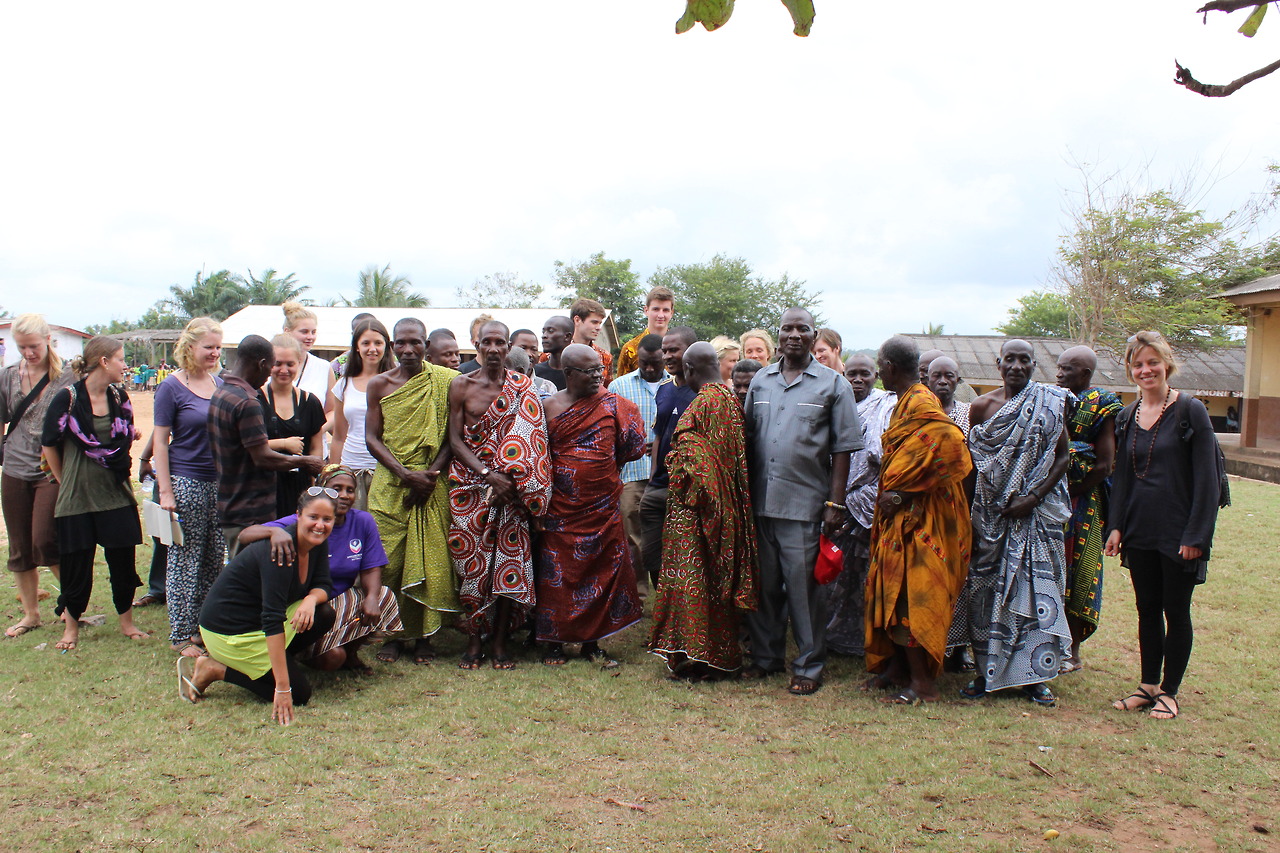
Sundays open the door to a new week and last sunday can be described as one that opened a big door. The third week in Cape Coast have been one full of many exciting and educating activities. After a week long celebration of the Fetu Afahye festival, the third week presents much fun as expected.
FIELD TRIP
The week began with lectures being held exactly as scheduled. On Tuesday, our expectations were met with lots of interesting and exciting experiences as we took our first field trip to Dutch Komenda. Before Dutch Komenda, we first stopped at the Fosu Lagoon in Cape Coast. Here, we had a short discussion with Dr. Dennis Aheto on the wetland and its pollution. The next stop was at the estuary of the Kakum River. Here, a more evaluative discussion was held. The issue of pollution and wetland degradation was also noticed here. Students were engaged in observations and discussions. Suggestions to rectify the problem were received by Dr. Aheto and from an expert’s point of view, the short and long term impact of the suggestions were also discussed.
Dutch Komenda is a coastal community to the west of Cape Coast. It took us about 50 minutes to get Dutch Komenda by bus from Cape Coast. As tradition demands, we met with the chief and elders of the town and informed them about the purpose of our visit. We were warmly welcomed and received like natives. At the meeting, we were educated on the history of the town and other important informations.
Dutch Komenda was originally know as “Kanka”. It is seperated by a lagoon from a neighbouring town called British Komenda. History has it that, the two communities were settled at different periods by the Dutch and the British in the 17th century hence the names. However, it is believed that the indigenous people of first settled at Dutch Komenda in the year 1350. After this, we were allowed to go into the community to make observations and collect information on the main environmental issues in the town.
The main problem facing the people is that of coastal erosion. From the interviews and other sources of information, the problem of sea inundation was first noticed in the early 90s but have become more serious lately. According to the inhabitants, during high tides houses about 100m away from the shoreline are flooded by the sea. With a number of houses already buried in the sea, the feeling of insecurity is increasing. The people are worried they might wake up one day at the other side of life.
FAREWELL PARTY FOR DR. LAURA PERREIRA.
The evening of wednesday, the 11th of September, 2013 saw the students of Kultur Studier gathered around the beautiful Laura Perreira. All too soon, two weeks has elapsed and what seemed to be the greatest moments of student-lecturer relationship is coming to an end. Diffenrent meals were prepared by Laura and the other staff. It was one of the most memorable moments as we celebrate Dr. Laura Perreira. We wish her all the best and hope the next lecturer will be equally friendly.
Lecture at UCC
Thursday the 12th of September, 2013 was the second day of lecture at the University of Cape Coast (UCC). The morning lecture was on Wetlands and was given by Dr. Dennis Aheto. The second was given by Dr. Laura Perreira. UCC presents a different environment of trees, lawns, many students and buildings as compared to the usual breeze of the ocean and the dazzling rays through the branches of the coconut trees. It was a beautiful experience and we loved it.
Evans




